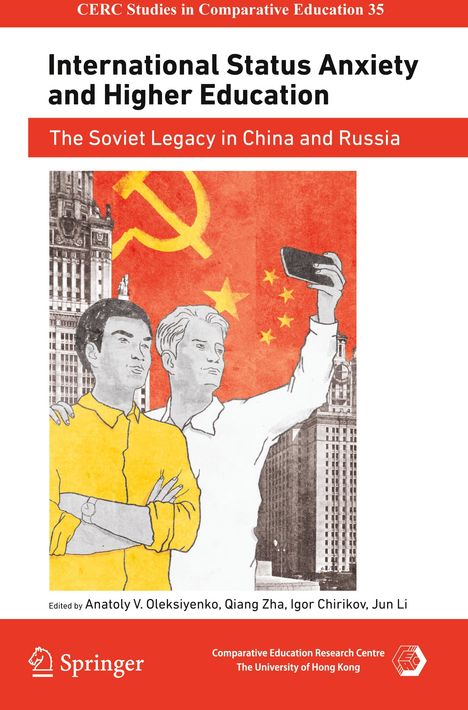International Status Anxiety and Higher Education, Gebunden
International Status Anxiety and Higher Education
- The Soviet Legacy in China and Russia
(soweit verfügbar beim Lieferanten)
- Herausgeber:
- Anatoly V. Oleksiyenko, Jun Li, Igor Chirikov, Qiang Zha
- Verlag:
- Springer International Publishing, 08/2024
- Einband:
- Gebunden, HC runder Rücken kaschiert
- Sprache:
- Englisch
- ISBN-13:
- 9783031538469
- Artikelnummer:
- 11936980
- Umfang:
- 424 Seiten
- Nummer der Auflage:
- 2024
- Ausgabe:
- 2024
- Gewicht:
- 799 g
- Maße:
- 241 x 160 mm
- Stärke:
- 29 mm
- Erscheinungstermin:
- 2.8.2024
- Hinweis
-
Achtung: Artikel ist nicht in deutscher Sprache!
Klappentext
This volume provides a critical perspective on the Soviet legacy of global competition and status anxiety in international higher education. Investigating tensions generated by the traditional power instruments of coercion, money and attraction, the book looks into the dynamics of multi-level forces that either advance progressive university policies and practices or lead to hyper-centralization, indoctrination and unfreedom of inquiry in higher education. The volume provides insights into political sources that champion the anxiety about superpower status over the agenda of social equality, fairness, and freedom in universities and their communities. The manuscript offers an excellent collation of studies shedding light on the phenomenon of de-Sovietization which was previously largely overlooked and underexplored in the higher education literature.
The book appeals to policy-makers, practitioners and scholars of higher education who seek to understand historical and political conditions that affect the currency of Chinese and Russian scholarship. As de-Sovietization of higher education may often be aspiration than reality in the two post-totalitarian countries, this books offers a unique, thought-provoking frame of analysis urging for more studies in the area as well as encouraging enhanced responsibility in creating sufficient room for freedom of critical inquiry.



